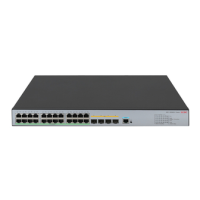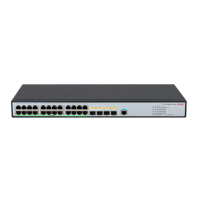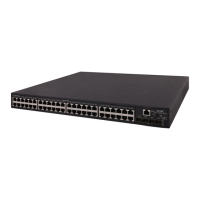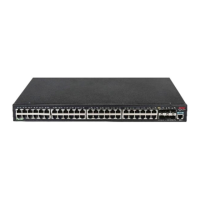108
IGMP support for VPNs
IGMP maintains group memberships on a per-interface base. After receiving an IGMP message on an
interface, IGMP processes the packet within the VPN that the interface belongs to. If IGMP that runs in a
VPN needs to exchange information with another multicast protocol, it passes the information only to the
protocol that runs in this VPN.
Protocols and standards
• RFC 1112, Host Extensions for IP Multicasting
• RFC 2236, Internet Group Management Protocol, Version 2
• RFC 3376, Internet Group Management Protocol, Version 3
• RFC 4605, Internet Group Management Protocol (IGMP)/Multicast Listener Discovery (MLD)-Based
Multicast Forwarding ("IGMP/MLD Proxying")
IGMP configuration task list
Task Remarks
Configuring basic IGMP
functions
Enabling IGMP Required
Configuring IGMP versions Optional
Configuring static joining Optional
Configuring a multicast group filter Optional
Setting the maximum number of multicast groups
that an interface can join
Optional
Adjusting IGMP performance
Configuring Router-Alert option handling
methods
Optional
Configuring IGMP query and response
parameters
Optional
Configuring IGMP fast-leave processing Optional
Enabling the IGMP host tracking function Optional
Setting the DSCP value for IGMP messages Optional
Configuring IGMP SSM
mapping
Enabling SSM mapping Optional
Configuring SSM mappings Optional
Configuring IGMP proxying
Enabling IGMP proxying Optional
Configuring multicast forwarding on a
downstream interface
Optional
For the configuration tasks in this section:
• In IGMP view, the configuration is effective on all interfaces. In interface view, the configuration is
effective on only the current interface.
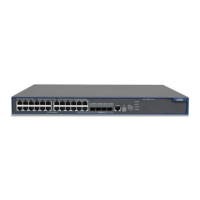
